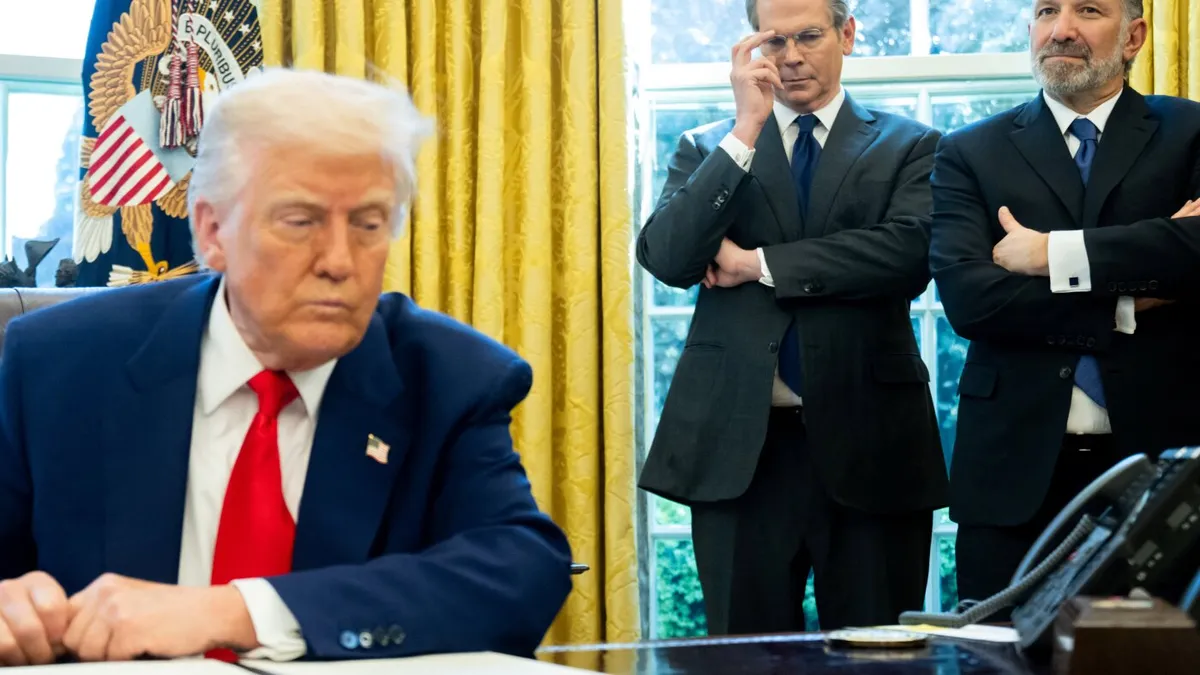
The past week has been a wild ride for businesses and markets following President Trump's announcement of sweeping tariffs. The situation took a dramatic turn when, just 12 hours after the implementation of country-specific tariffs on numerous U.S. trading partners, Trump decided to pause most of them for a period of 90 days. This unexpected announcement came on Wednesday afternoon, shortly after he had maintained that these tariffs would remain in effect. In a post on Truth Social, he cited the desire of over 75 countries to negotiate solutions regarding trade, tariff barriers, and currency manipulation as a key reason for the temporary halt.
Despite Trump's earlier assertions that the tariffs were not intended as a bargaining chip, he later suggested that the market's decline influenced his decision. The pause allows the White House a three-month window to engage in negotiations with individual countries. White House Press Secretary Karoline Leavitt defended this pivot, stating that many in the media failed to recognize the art of the deal that Trump was executing.
Wall Street responded positively to the announcement, with major indices seeing significant gains. The Dow Jones Industrial Average surged nearly 8%, the S&P 500 rose over 9%, and the Nasdaq experienced its largest one-day increase since 2001, climbing more than 12%. However, this optimism was short-lived as markets fell again the following day, indicating ongoing uncertainty.
The European Union has also decided to pause its retaliatory tariffs against the U.S. for 90 days. Initially, the EU had planned to implement higher duties on U.S. imports in response to the 25% tariffs on steel and aluminum imposed by the Trump administration. Although these tariffs remain, the EU expressed a willingness to negotiate following the reduction of reciprocal tariffs on European goods from 20% to a baseline of 10%.
However, the baseline tariff of 10% on all imported goods remains in effect, meaning that prices for consumers will still be higher than they were prior to these trade measures. Canada and Mexico were excluded from this tariff, but many goods from these countries are still subject to tariffs, albeit fewer than initially threatened.
The trade war with China continues to escalate, with Trump increasing tariffs on Chinese imports to a staggering 125%. He cited a lack of respect from China towards global markets as the justification for these heightened tariffs. In response, China has raised its retaliatory tariffs against the U.S. to 84%, further complicating the already tense trade relationship.
Additionally, a statement from China's Film Administration indicated that the reduction of U.S. films shown in China could be a consequence of Trump's tariff policies. Treasury Secretary Scott Bessent suggested that the current situation is a tactical move by the Trump administration to put China in a challenging position.
With the majority of reciprocal tariffs paused, the Trump administration is now focusing on creating individual trade deals with countries that have not retaliated. Bessent emphasized that these negotiations would be bespoke and tailored to each country's unique situation. Over 75 countries have reportedly expressed interest in negotiating with the U.S., and discussions are already underway with nations in Asia, Europe, and beyond.
Although specific details about the negotiations remain unclear, Trump has indicated a willingness to engage with leaders like Chinese President Xi Jinping, whom he described as a friend. As the landscape of U.S. trade policy continues to evolve, the coming months will be critical in determining the future of international trade relations.